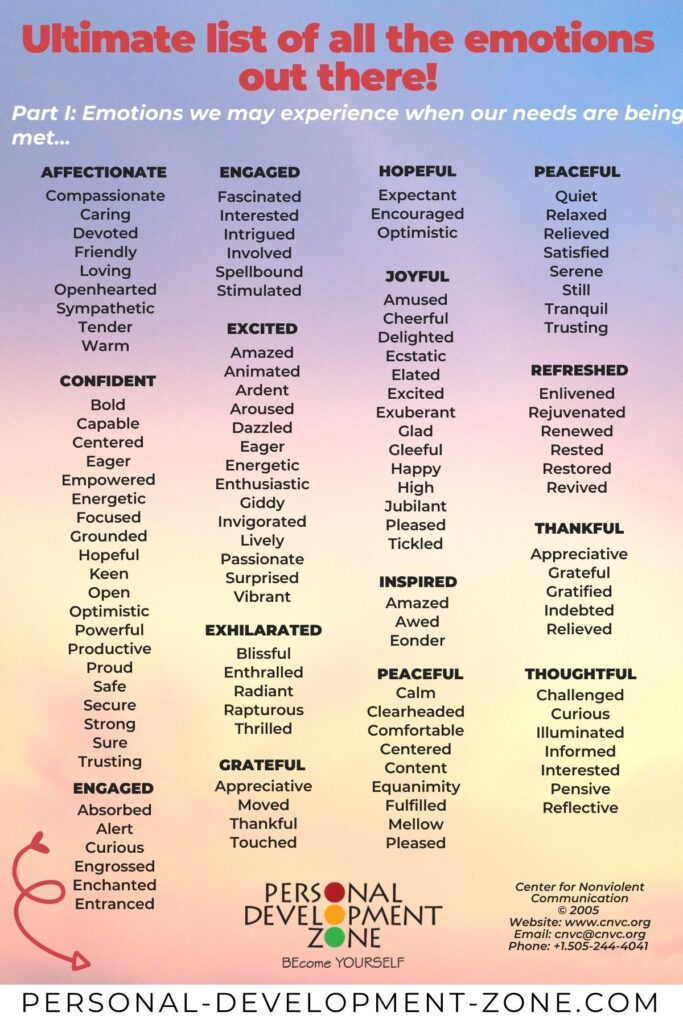

The numbers I provide don't distinguish various uses. One limitation to be aware of, though, is that many of these words have other uses too (for example, "livid" may be used to describe bruises more than feelings, or "dismal" more for landscapes than people). You can see the list sorted alphabetically or by frequency. I have extracted the number of times each one occurs in a standard 100 million word text collection, called the British National Corpus. You may also want to see word frequency information on these words that is, how often they occur in English. Such words are struck-through below when I have gotten around to it. For example, "I feel attacked" can come across as implying "and you attacked me," which probably won't help the conversation much. Note: If you are trying to describe your own feelings in a non-offensive manner, besides the age-old rule of talking in terms of "I", not "you", it is wise to avoid many emotion words that are passive words (mostly ending in "-ed"), at least when a word can be negative. I suppose one could use a thesaurus for this, too, but I didn't.īelow, I have listed adjectives or verbs ("afraid", "boiling") rather than nouns ("fear", "frustration"), because naming a feeling seems less direct than using it to describe your experience. They are slightly organized into broad categories of feelings. This page provides a broad collection of emotion words: English words for various emotions or feelings. The Compass DeRose Guide to Emotion Words The Compass DeRose Guide to Emotion Words


 0 kommentar(er)
0 kommentar(er)
